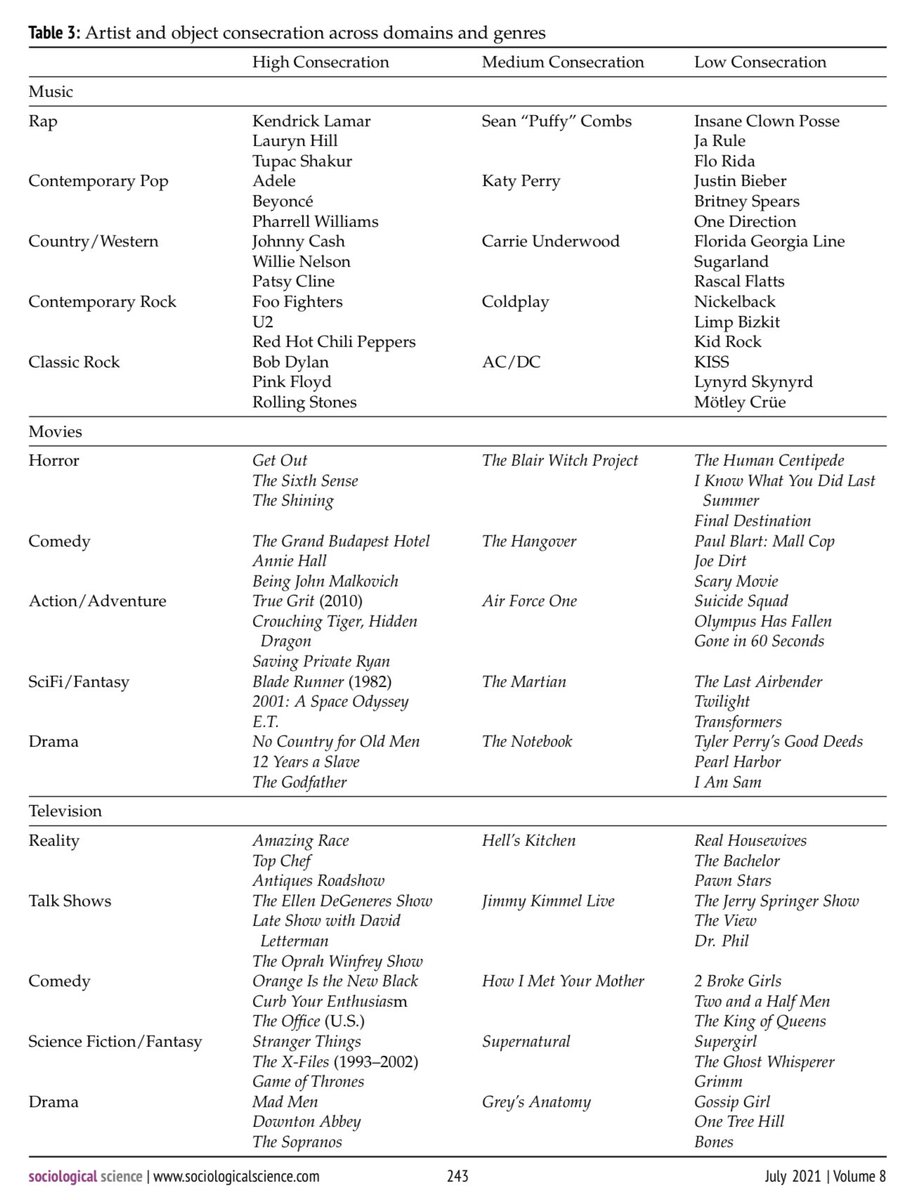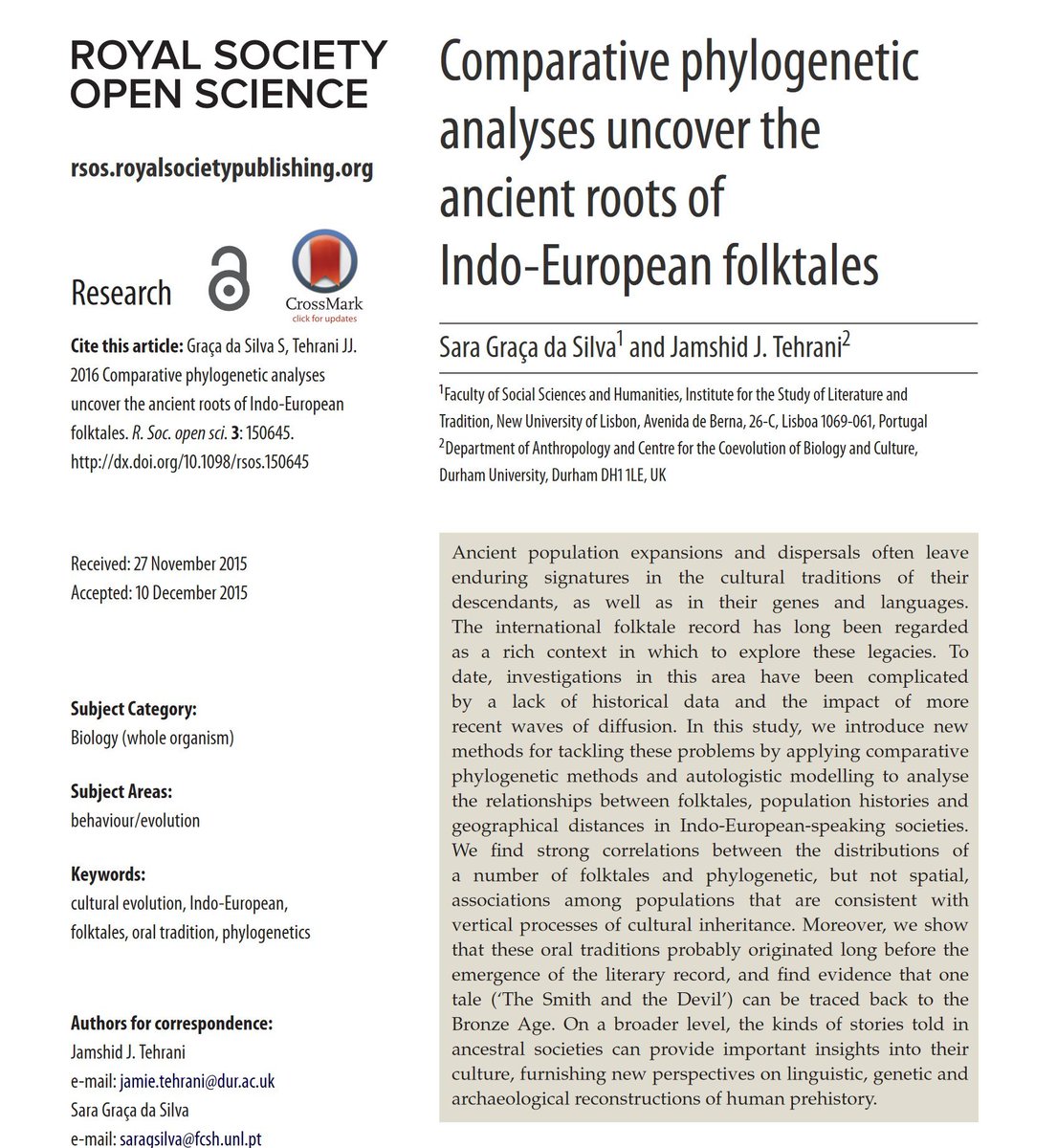
Very cool paper that shows the modern formula for having high status tastes: you like every genre (rap and classic rock, comedy & horror) but you only like very particular “high consecration” examples (Kendrick Lamar & Bob Dylan). The chart of consecrated media is worth a look! 
https://twitter.com/sociologicalsci/status/1415448534992789507

Side note: this appears to be only the 5th academic paper to reference “Paul Blart: Mall Cop”
It also matches an earlier paper in the same journal on the general decline of genre snobbery as a sign of cultural tolerance.
https://twitter.com/emollick/status/1311323728475717633
More on changing high culture tastes: What the British elite do, from 120 years of UK Who's Who:
🦊The 1800s: parties at estates & aristocratic pursuits like fox hunts
🎨The early 1900s: highbrow arts
🐕Recently: hanging out with pets & friends, with a little high arts for spice

🦊The 1800s: parties at estates & aristocratic pursuits like fox hunts
🎨The early 1900s: highbrow arts
🐕Recently: hanging out with pets & friends, with a little high arts for spice


• • •
Missing some Tweet in this thread? You can try to
force a refresh




















